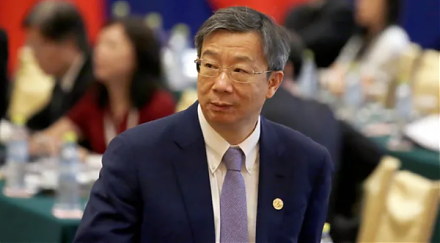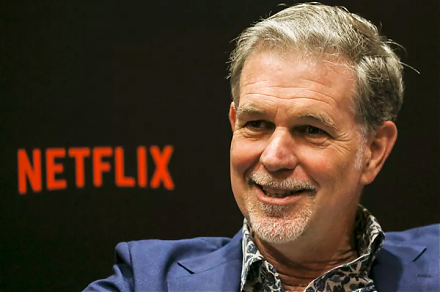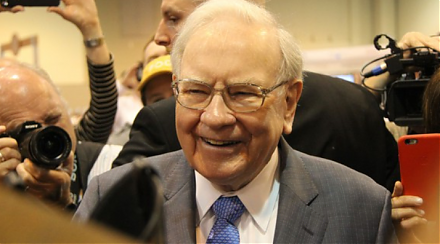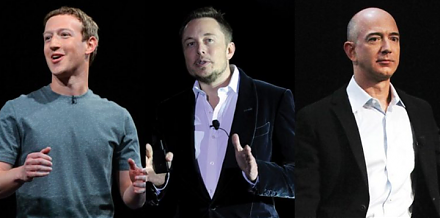

2020-08-12 07:25:00 Wed ET
technology lean startup value creation team leaders iterative continuous improvements culture changes perseverance resilience agility senior managers growth investments core business operations disruptive innovation purpose strategic solutions tactical solutions sustainable profitability business builders life metaphors seamless integration
Most sustainably successful business leaders make a mark in the world, create a positive impact, and challenge the status quo.
Jerry Porras, Stewart Emery, and Mark Thompson (2006)
Success built to last: creating a life that matters
Key business leaders and decision-makers strive to accomplish what matters most to make a major difference in the world. These business leaders often harvest their failures and setbacks and further summon the courage to follow their passions. In practice, these people feel no need to rely on the approval of others to pursue their own socio-economic causes. Most sustainably successful business leaders make a mark in the world, create a positive social impact, and challenge the conventional wisdom. These business leaders and decision-makers often dare to differ from the status quo with iterative continuous product feature enhancements, technological advances, and customer service innovations etc.
For enduringly successful business people or business builders, the core definition of success is a socioeconomic life of work that achieves personal fulfillment with a major positive difference in the world. The sustainably successful business leaders achieve longer-term legacies in their respective fields for at least 20+ years. A core personal commitment may not result in fame, power, or wealth. However, this long-term personal commitment can result in a life of meaningful work that makes a real positive impact on the day-to-day socio-economic lives of others.
Business leaders and decision-makers who are passionate about their work often lose track of time. This meaningful work-life quality contributes to the lives of others in a positive way. These business people often share the unique thought patterns with a sense of both passion and optimism. From time to time, actionable business insights often precede perspiration. Most sustainably successful business leaders often transform their knowledge (i.e. meaningful work-life quality plus a responsible sense of both passion and optimism) into practical applications. Actions often tend to speak louder than words. What is truly meaningful with a clear life purpose drives creative thoughts and so motivates these business builders to take actions. These thoughts and actions serve as incremental proactive steps that business builders take to achieve personal fulfillment (but not in response to societal expectations of fame, power, and wealth). Business builders, lean CEOs, and disruptive innovators lead by example, motivate other team members, and then strive to enrich the lives of others via transformative technological advances in mobile connectivity, finance, software, online search, e-commerce, media, and social network communication.
What is truly meaningful shines light on the life purpose of business builders.
For most business builders who love what they want to achieve in time, most work experiences feel like fun, focus, peace, and joy. These business builders often feel the continuous flow of deep immersion in multi-projects that enable these business leaders to lose track of both time and place. Their work often shines fresh light on what is truly meaningful in helping enrich the lives of others. In this important way, these business builders can connect the continuous flow of deep immersion in their work to the big and bold life purpose or social cause on earth.
For instance, Amazon taps into e-commerce and cloud service provision; Google focuses on Internet search and cloud software development; Apple specializes in the design and development of smart mobile devices such as iPhones and iPads; Microsoft fixates on the Windows operating system, Office software suite, and key cloud software service provision; and Facebook integrates Messenger, Instagram, WhatsApp, and Oculus VR into the broader social network platform ecosystem. In essence, these platform orchestrators scale up a critical mass of early technology adopters to optimize both user experiences and interactions in the broader context of substantial business network platform ecosystems.
When people find worth in their lives, these people often feel a happy excitement that empowers them to bounce out of bed each day to face the next new challenge. Most successful business builders tend to see the benefits of each situation rather than dwell on its negative costs. From time to time, irrational optimism empowers most business builders to beat the odds. These business builders often focus on the positive outcomes, love their work experiences, and find out new lean solutions in response to many problems, setbacks, and obstacles etc. Each ultimate problem resolution becomes part of the positive results and outcomes, lean solutions, and career experiences over time.
Most enduringly successful business builders cannot compartmentalize their lives into a few politically correct sections that please others in close alignment with key societal expectations. These business builders seldom raise work-life balance as a major issue. Instead, these business builders focus on work-life quality and thus seek to extract quality out of each precious moment of both work and life. As these business builders masterfully handle work-life quality, they often dare to dream to find out creative lean solutions from new and diverse perspectives.
Insofar as the experiences are truly meaningful, work-life quality matters more than work-life balance. Peripheral vision allows people to see more angles to a situation or an object (without specifically looking at it). In a similar vein, peripheral thoughts often help change the perspective and therefore empower most business builders to unlock their new passions, hidden talents, or secret weapons. This broad brush portfolio of passions allows most business builders to become their own harshest critics. As a result, these business builders honestly probe into what matters most. This peripheral vision also encourages people to take time to experiment with more than one passion. In this light, key business builders often practice their peripheral thoughts and behavioral patterns in order to make wiser corporate decisions.
A good example is the 20% project time at Google where each senior engineer or scientist spends up to one business day per week trying to find their new passions. Huge 20% software products include Google News, Gmail, and AdSense. Among other creative software products, the 20% projects transform Google as an Internet search engine into Alphabet as an Internet software conglomerate. When business builders empower most team members to make their own dreams the full-time jobs, this team empowerment can help accomplish many major milestones over time. In due course, this 20% time rule results in many huge projects that yield exponential gains at Google. Several other platform enterprises have begun to adopt this 20% project rule and objectives and key results (OKRs) in favor of disruptive innovations. These platform enterprises include Airbnb, Facebook, Microsoft, Twitter, Uber, and so forth.
Business builders and disruptive innovators cannot view their jobs as destinations. Instead, these business leaders see their jobs as continuous ongoing journeys with no end. These business leaders cannot claim to be rich and famous and then leave that claim as the end of the story. Both business builders and disruptive innovators focus on what matters most (e.g. niche, passion, integrity, and so on) and then find true worth in every business opportunity. These business leaders often commit to core values, visions, beliefs, and passions etc, and this personal commitment can make a long-term positive impact on the socio-economic lives of others.
Good business outcomes often arise from listening to the inner voices inside about what matters most to the socio-economic day-to-day lives of others.
What matters to business people may not be the same for Christians. For the most part, however, their core values and visions can be similar. Both business leaders and Christians may independently pursue the bold long-term goals of enriching the lives of others in the world. Core values, beliefs, visions, or passions from creative expressions to individual long-term aspirations often spring from meaningful ideas (even if some of these ideas sometimes seem non-intuitive and impractical). Most importantly, these business leaders remain true and authentic to themselves, tend to follow their core values and passions (but not the values and passions of others), and thus keep to the integrity of personal fulfillment in due course.
The Hebrew phrase Tikkun Olam means world repair. In modern Christian circles, Tikkun Olam has become synonymous with the meaningful notion of constructive social actions that contribute to a better world. God provides us with fire and wheat so that we can come up with bread. In a similar vein, God provides us with fire and clay so that we can bake the bricks ourselves. In this unique way, we can become partners in completing the act of creation. In this positive light, our time on earth is important. We are not just passive observers, but also active participants in helping make the world a better place. Christians bear a sense of individual responsibility in accordance with the concept of Tikkun Olam. In the modern age, entrepreneurs share the same sense of individual responsibility for their special advisors, senior specialists, and many other team members to make positive contributions to enrich the lives of others. From time to time, many founders and entrepreneurs must learn to reconcile what they want with what they can risk in order to accomplish their big long-term goals.
Long-term business success often comes from inside.
Long-term business success often comes from the inner voices and passions. Self-doubt sometimes creeps into the business mindset and so prevents founders and entrepreneurs from forging ahead to go after what is truly meaningful to them. One can identify 4 main mental traps that often undermine long-term business success:
As a child, Tom Clancy enjoyed his war toys and stories, naval history, and the outer space. His poor eyesight prevented him from serving in the air force. After getting a degree in English, Clancy started working as an insurance broker, and later bought a family brokerage firm. At first glance, it seemed wrong for Clancy to leave this lucrative insurance business to become a novelist. His longer-term aspiration continued to lurk as he continually read military literature for the sake of research. About 20 years passed before Clancy wrote his novel The Hunt for Red October. This novel became a hugely popular thriller. Clancy enjoyed long-term success because he chose not to let his dream die. He pursued what was truly meaningful to him. Clancy was not only able to make himself a successful author, but he was also able to make his success last.
For instance, Taiwanese-born engineer Jensen Huang, cofounder and CEO of the multi-billion-dollar video chipmaker Nvidia has always been a quiet introvert. When he steps up to his computer screen, he lights up with passion for his work. The executive role makes him seem charismatic in front of shareholders, stock analysts, upstream suppliers, customers, employees, and other stakeholders. When Jensen Huang talks about his favorite topic on GPU video transmission, he gains courage to share his lifelong passion. As an executive leader, he pulls together teamwork and deep knowledge about video microchip production with great charisma and subject matter expertise.
What may not be readily noticeable is that sustainably successful business people make mistakes from time to time. Adversity provides the opportunity for business leaders and their team members to get better at what they try to accomplish in time. Lean CEOs, disruptive innovators, and business builders strive to go from average to extraordinary. Stretching the limits of brain power often helps test what matters most to these business leaders. With great endurance, long-term achievers work with the negative situations and so harvest what they can from mistakes, setbacks, failures, and obstacles. In a unique way, iterative continuous improvements often become possible. However, it cannot be wise for business leaders to go overboard. Sometimes the better is the worst enemy of the good. The obsession for perfection can be detrimental to organic business growth. At the same time, persistence can be the greatest asset for business leaders, their special advisors, senior specialists, and other team members to initiate high-leverage positive changes and disruptive innovations.
Several public figures managed to initiate high-leverage positive changes in their respective fields. For instance, the American Christian minister and activist, Martin Luther King, became the highly visible leader in the civil rights movement from the mid-1950s to 1968. In America, King advanced civil rights and further fought racial inequality and discrimination through non-violent resistance. His Christian values and beliefs inspired many followers to transform the American society into an open, diverse, and inclusive team environment.
In Corporate America, Michael Dell founded his company Dell Computer through a series of experiments. Most of his experiments failed, but none were big enough disasters to destroy his company. Dell had no precise business plan, but rather he had a vision that he could bypass retailers to sell computers directly by mail. Dell received instant validation of his product-market fit and then became the youngest person to let his company go public on the stock market. Within a year, however, Dell Computer warehouses were full of excess inventory of electronic components. Adversity could not defeat Dell. He was then able to get his company back on track by distributing both computers and electronic components through CompUSA and Best Buy. Through this journey, Dell built his great computer company to last from one generation to the next.
In the political field, President John Kennedy set the American goal to have a man on the moon and back before the end of a decade. At that time, Americans had no idea how their astronauts could accomplish this mission. Visiting the mystical moon was the bold goal. The transformative value of symbiotic relations between human endeavors and high-tech advances once made America a great country. President Kennedy was able to charismatically boost the American competitive team spirit to encourage ubiquitous belief in pushing the boundaries for the human race.
In order to build the dream team, business leaders, disruptive innovators, and lean CEOs view their special advisors, senior specialists, and individual contributors as potential long-term team members. These business leaders often need to listen to constructive disagreement that arises as a result of both passion and engagement. It is important for these business leaders to establish ground rules such that every team member takes turns to discuss 95% of the ideas. This idea meritocracy helps build mutual trust and respect among all team members. Actions speak louder than words. At the same time, both words and actions must match good intentions well in line with long-term goals and plausible corporate visions.
Key business leaders and decision-makers strive to accomplish what matters most to make a major difference in the world. These business leaders often harvest their failures and setbacks and further summon the courage to follow their passions. In practice, these people feel no need to rely on the approval of others to pursue their own socio-economic causes. Most sustainably successful business leaders make a mark in the world, create a positive social impact, and challenge the conventional wisdom. These business leaders and decision-makers often dare to differ from the status quo with iterative continuous product feature enhancements, technological advances, and customer service innovations etc.
For enduringly successful business people or business builders, the core definition of success is a socioeconomic life of work that achieves personal fulfillment with a major positive difference in the world. The sustainably successful business leaders achieve longer-term legacies in their respective fields for at least 20+ years. A core personal commitment may not result in fame, power, or wealth. However, this long-term personal commitment can result in a life of meaningful work that makes a real positive impact on the day-to-day socio-economic lives of others.
This analytic essay cannot constitute any form of financial advice, analyst opinion, recommendation, or endorsement. We refrain from engaging in financial advisory services, and we seek to offer our analytic insights into the latest economic trends, stock market topics, investment memes, personal finance tools, and other self-help inspirations. Our proprietary alpha investment algorithmic system helps enrich our AYA fintech network platform as a new social community for stock market investors: https://ayafintech.network.
We share and circulate these informative posts and essays with hyperlinks through our blogs, podcasts, emails, social media channels, and patent specifications. Our goal is to help promote better financial literacy, inclusion, and freedom of the global general public. While we make a conscious effort to optimize our global reach, this optimization retains our current focus on the American stock market.
This free ebook, AYA Analytica, shares new economic insights, investment memes, and stock portfolio strategies through both blog posts and patent specifications on our AYA fintech network platform. AYA fintech network platform is every investor's social toolkit for profitable investment management. We can help empower stock market investors through technology, education, and social integration.
We hope you enjoy the substantive content of this essay! AYA!
Andy Yeh
Chief Financial Architect (CFA) and Financial Risk Manager (FRM)
Brass Ring International Density Enterprise (BRIDE) ©
Do you find it difficult to beat the long-term average 11% stock market return?
It took us 20+ years to design a new profitable algorithmic asset investment model and its attendant proprietary software technology with fintech patent protection in 2+ years. AYA fintech network platform serves as everyone's first aid for his or her personal stock investment portfolio. Our proprietary software technology allows each investor to leverage fintech intelligence and information without exorbitant time commitment. Our dynamic conditional alpha analysis boosts the typical win rate from 70% to 90%+.
Our new alpha model empowers members to be a wiser stock market investor with profitable alpha signals! The proprietary quantitative analysis applies the collective wisdom of Warren Buffett, George Soros, Carl Icahn, Mark Cuban, Tony Robbins, and Nobel Laureates in finance such as Robert Engle, Eugene Fama, Lars Hansen, Robert Lucas, Robert Merton, Edward Prescott, Thomas Sargent, William Sharpe, Robert Shiller, and Christopher Sims.
Follow AYA Analytica financial health memo (FHM) podcast channel on YouTube: https://www.youtube.com/channel/UCvntmnacYyCmVyQ-c_qjyyQ
Follow our Brass Ring Facebook to learn more about the latest financial news and fantastic stock investment ideas: http://www.facebook.com/brassring2013.
Free signup for stock signals: https://ayafintech.network
Mission on profitable signals: https://ayafintech.network/mission.php
Model technical descriptions: https://ayafintech.network/model.php
Blog on stock alpha signals: https://ayafintech.network/blog.php
Freemium base pricing plans: https://ayafintech.network/freemium.php
Signup for periodic updates: https://ayafintech.network/signup.php
Login for freemium benefits: https://ayafintech.network/login.php
If any of our AYA Analytica financial health memos (FHM), blog posts, ebooks, newsletters, and notifications etc, or any other form of online content curation, involves potential copyright concerns, please feel free to contact us at service@ayafintech.network so that we can remove relevant content in response to any such request within a reasonable time frame.
2019-09-13 10:37:00 Friday ET

China allows its renminbi currency to slide below the key psychologically important threshold of 7-yuan per U.S. dollar. A currency dispute between the U.S.
2019-08-14 10:31:00 Wednesday ET

Netflix suffers its first major loss of U.S. subscribers due to the recent price hikes. The company adds only 2.7 million new subscribers in 2019Q2 in stark
2018-02-23 09:35:00 Friday ET

Warren Buffett releases his annual letter to Berkshire Hathaway shareholders as of February 2018. Buffett discusses Berkshire's core cash ambition, its
2025-06-13 08:23:00 Friday ET

What are the mainstream legal origins of President Trump’s new tariff policies? We delve into the mainstream legal origins of President Trump&rsquo
2018-03-29 14:28:00 Thursday ET

Share prices tumble for technology stocks due to Trump's criticism of Amazon's tax avoidance, Facebook user data breach of trust, and Tesla autopilo